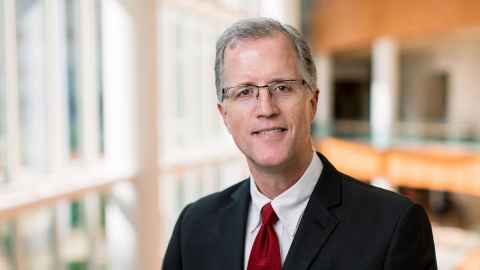Cardiac Rehabilitation: The best kept secret in cardiology
26 March 2019
One heart attack places you at greater risk of having another but there are steps you can take to lower the risk.

Approximately 900 New Zealanders will leave hospital this month having survived a heart attack but while one heart attack places you at greater risk of having another, there are steps you can take to lower the risk.
Evidence suggests that cardiac rehabilitation, a programme of individually prescribed exercise and physical activity, makes a significant difference to physical health following a heart attack and is the subject of a public lecture at the University of Auckland.
Professor Randal Thomas is a professor of medicine at the Mayo Clinic Alix School of Medicine, and the medical director of the cardiac rehabilitation programme at the Mayo Clinic in Rochester, Minnesota, in the United States. He visits the University as a Hood Fellow.
He says less than a third of individuals with heart disease are receiving a therapy that significantly reduces death rates and recurrent heart attack rates while also improving measures of good health including quality of life and the ability to do physical work.
Cardiac rehabilitation started in the 1960s as a way to help individuals recuperate from long hospitalisations but has evolved into a much broader intervention strategy.
It is now a longer-term, multidimensional, systematic approach to healthy healing for individuals with heart disease.
Professor Thomas will give an update on this remarkable and life-saving therapy—what it is, why it is so effective, why it is under-utilised, and why its future is so bright.
Professor Thomas is a past president of the American Association of Cardiovascular and Pulmonary Rehabilitation (AACVPR), past chair of the Exercise and Cardiac Rehabilitation Committee of the American Heart Association (AHA), and current chair of the AHA’s Clinical Cardiology Council.
He is a member of the American College of Cardiology (ACC)/AHA Performance Measures Task Force and chair of the Cardiac Rehabilitation Performance Measures Writing Group.
His clinical time is spent in the field of preventive cardiology and cardiac rehabilitation, and his research focus has been on the benefits of, and delivery gaps in, cardiac rehabilitation.
This free public lecture will be held on Thursday, 28 March at 6pm in Lecture Theatre 505-007, Building 505, Park Road, Grafton Campus of the University of Auckland. All welcome.
Media contact
Anne Beston | Media advisor
DDI 09 923 3280
Mob 021 970 089
Email a.beston@auckland.ac.nz